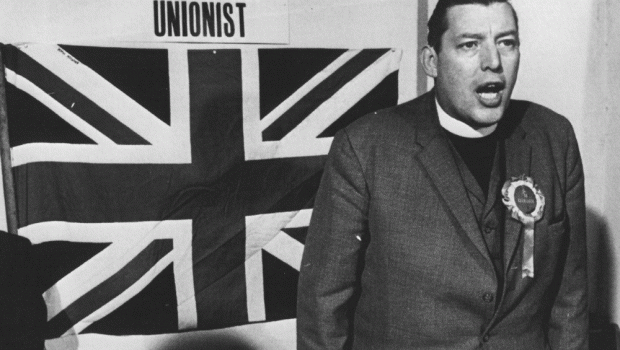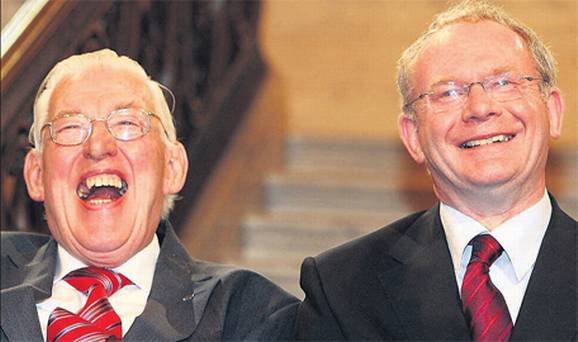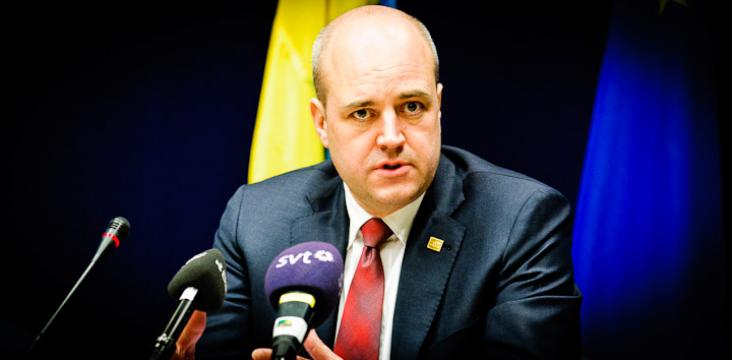Ian Paisley was a small man, and he led a small movement that forestalled peace in Northern Ireland for decades, withholding from Protestant and Catholic families alike the economic and social progress that accrued to virtually the rest of western Europe, and inflaming sectarian tribalism that still haunts Northern Ireland’s cultural fabric in the 21st century.![]()
![]()
Upon his death today at age 88, he’ll be feted as a statesman in too-long-to-read eulogies prepared long ago in The Guardian and The New York Times.
Those eulogies will note that Paisley, at age 81, finally agreed to a power-sharing agreement with Irish Republicans, making him Northern Ireland’s first minister from 2007 until his retirement in 2008. It was a decade after he opposed the 1998 Good Friday Agreement that generally ended active fighting between Northern Ireland’s Protestant loyalists and Catholic republicans. Those eulogies will show pictures of Paisley smiling and laughing with his nemesis, Martin McGuinness, the Northern Irish leader of Sinn Féin who continues to serve as Northern Ireland’s deputy first minister in a power-sharing coalition with Paisley’s successor, Peter Robinson.
They were nicknamed the ‘Chuckle Brothers,’ though it’s hard to find too much to laugh about in the deaths of over 3,500 people during three decades of fighting that tore apart families and stunted the growth of a country all in the name of religious nationalism.
Paisley’s critics argue that his 11th hour conversion to power-sharing was a cynical maneuver — with the knowledge that reverting to the violent era of the Troubles was impossible, Paisley moved to cement his Democratic Unionist Party (DUP) as the natural party of Protestant governance in Northern Ireland, displacing the more moderate Ulster Unionist Party (UUP) and David Trimble, who won the Nobel Peace Prize for his efforts to enact the Good Friday Agreement.
Cynical or not, Paisley’s late-in-life conversion is a fact, and it won’t be the first time that politicians have taken self-serving actions. In exchange for the power-sharing agreement, Paisley will be remembered today as a statesman with a peerage, not a garden-variety terrorist. That’s just politics, and Paisley made the smart move. He saw, a decade after Good Friday, that the train was well out of the station, and he jumped on at the last minute.
And so much the better for Northern Ireland that he did.
But he took a damned ugly path to get there. Continue reading No eulogies for Paisleyism



